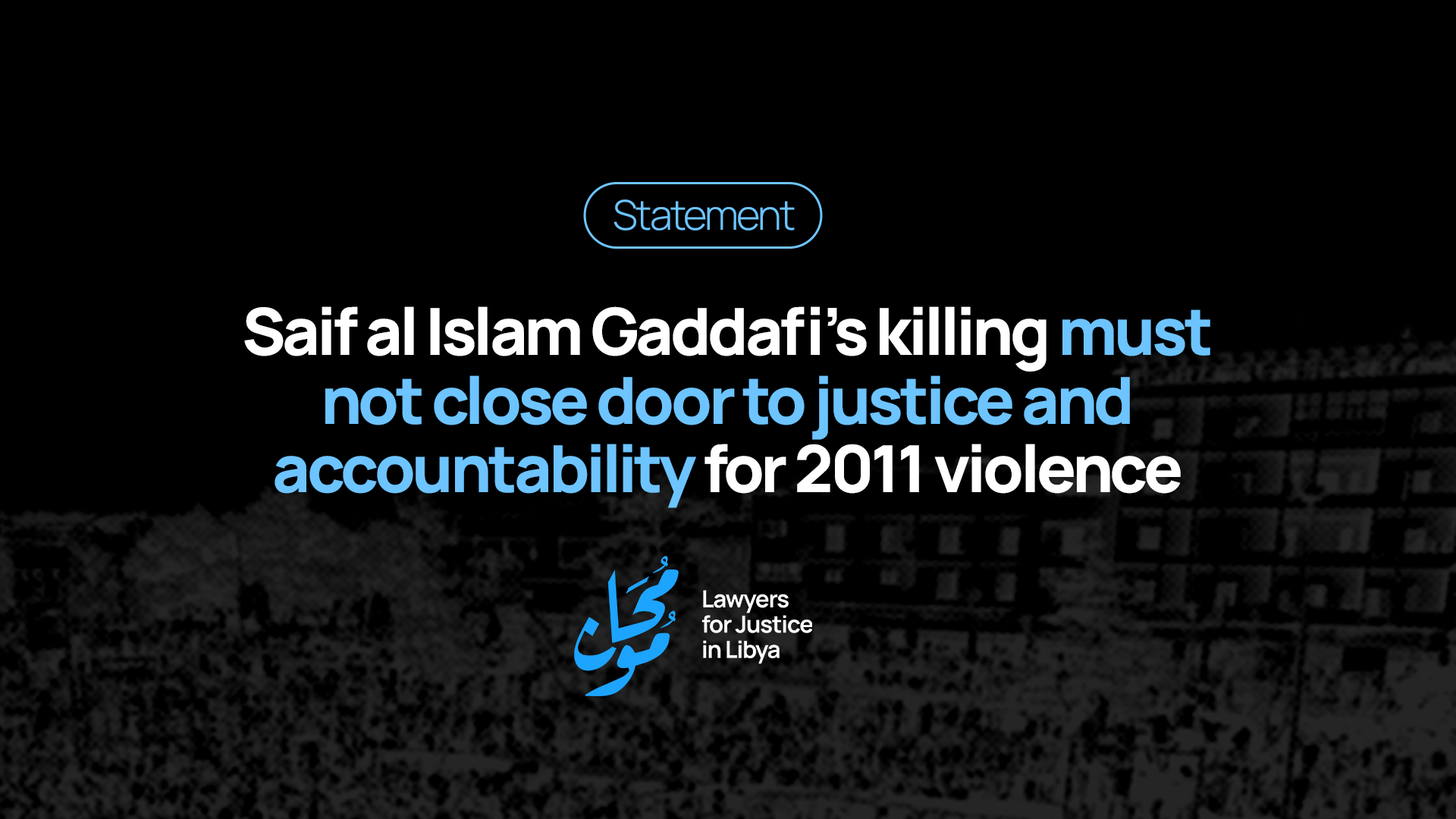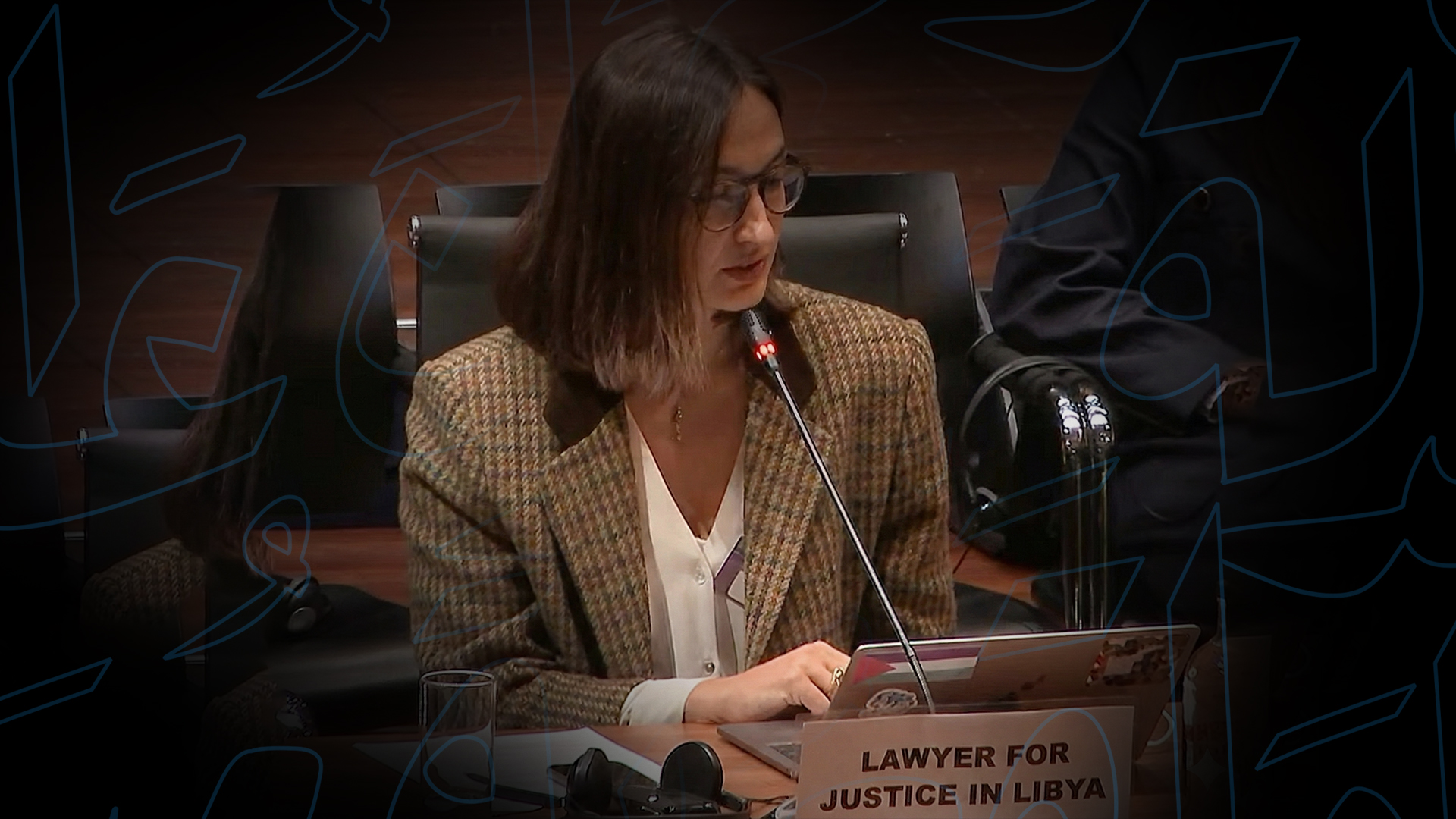Recent unrest must be addressed by government with action and accountability
Lawyers for Justice in Libya (LFJL) is concerned by the political assassinations and attacks in Libya this week, including the killing of prominent political activist and lawyer Abdul Salam Al Mismari, as well as two army generals, on Friday in Benghazi. Libyan Special Forces officer Ahmad Al-Siddik Al-Zwai was killed and two others injured in several car bombing attacks on Monday evening in Benghazi. LFJL urges the Libyan government to take responsibility in ensuring the rule of law and in pursuing justice for victims.
On 26 July 2013, Al Mismari was shot dead shortly after Friday prayers upon exiting Masjid Al Ghoula in Birqa district in Benghazi; the perpetrators have yet to be identified. Two army generals, Salim Asarah and Mohamed Abdurrahim Khatab, were also assassinated in Benghazi. Three car bomb attacks against security officials also took place in Benghazi on 29 July 2013, one of which resulted in the death of Ahmad Al-Siddik Al-Zwai. Prime Minister Zeidan pledged to begin investigations into the assassination of Al Mismari immediately. No statement was made by the government with regard to whether any investigations would take place into the other assassinations.
“These tragic events are encouraged by the lack of accountability mechanisms and the absence of political will to enforce the rule of law in Libya,” said LFJL Director Elham Saudi. “We need stronger action from the government to ensure that perpetrators do not go unpunished for their crimes. Impunity will only led to a continuation of, and an increase in, attacks,” she added.
In addition to assassinations, the lack of the rule of law and the prevalence of impunity has also resulted in greater disorder and hostilities in Libya. On Saturday, 1,000 inmates escaped from the Al Kwaliya Jail in Benghazi. The escape follows a series of other attacks this week. These include the desecration of historical Greek graves in the Green Mountains in Eastern Libya, as reported on social media outlets, on Friday, two attacks on the Embassy of the United Arab Emirates in Tripoli on Thursday, the bombing of a police station in Benghazi, and a bombing in front of a courthouse in Sirte on Monday.
“These acts are clear crimes under Libya’s Penal Code. If the law is not enforced, it will result in even more dire consequences that will not only impact Libya’s state of security, but also threaten the fundamental cornerstone of any peaceful state: the rule of law. Libya’s ability to move forward with democratic transition and undertake such processes as the drafting of the constitution are in serious danger,” added Saudi.
Share your thoughts:
To what do you attribute the recent increase of violence, targeted killings, and attacks?What do you think the government should do in response to the wave of assassinations and attacks on sites such as embassies and historical graves?To what degree do you think Libya is governed by the rule of law?
Take our survey and join the conversation on our Facebook Page and Twitter.





